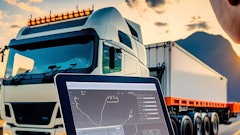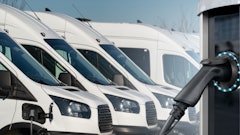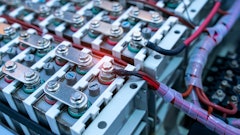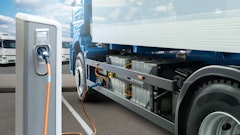
Logistics is undergoing a reputation revival. In days past, people associated trucking and transport with practices and processes that were damaging to the environment. Nowadays, technologies, such as electric vehicles, are increasingly easy to integrate into a fleet with benefits related to both time-savings and long-term investment payoffs.
Electric trucks offer a host of benefits to individual companies. Their ranges are often perfect for local and client-specific routes, with minimal charge times and reduced energy consumption. This offers an opportunity for companies to think strategically about their routes and client base. How can electric trucking technology be optimized to make the most out of the investment?
From a logistics leadership standpoint, the shift to electric is not just about reducing greenhouse gas emissions or meeting regulatory goals; it’s about shaping the industry’s future workforce. The adoption of new and sustainable technology sends a clear message to the workforce: logistics is evolving with the times. It’s an industry open to new ideas and willing to lead change. In an increasingly competitive labor market, that message could make all the difference in attracting fresh talent to an industry that powers the global economy.
Through initiatives like the adoption of an electric fleet and investments in ongoing cutting-edge technologies, companies are leading a movement toward environmentally conscious logistics solutions that prioritize the well-being of the planet and prosperity of generations to come.
The case for electric truck integration, however, goes far beyond sustainability goals. Over a vehicle’s lifetime, there are immense cost savings that can be expected. Electric trucks require less maintenance than their traditional counterparts. This is thanks to fewer moving parts, less upkeep responsibilities (i.e., oil changes), and reduced wear on brakes due to regenerative braking systems. All of this lends itself to less downtime with more predictable expenses.
According to a 2024 Frost & Sullivan study, “80% of mixed-energy fleet operators intend for at least 25% of their fleets to be comprised of electric vehicles (EVs) by 2030 and 42% stated that half or more of their fleet would be composed of EVs by 2030.” Companies have seen the adoption rates of electric fleets and are taking note of the obvious benefits.
There are already tax credits, grants, rebates, and infrastructure development programs aimed at making electric fleets both affordable and accessible. Interested companies should look into:
● Commercial Clean Vehicle Tax Credit: Part of the Inflation Reduction Act, this credit provides tax benefits for the purchase of new and used clean commercial vehicles.
● Alternative Fuel Vehicle Refueling Property Credit: This tax credit offers incentives for installing EV charging infrastructure, one necessity for electric fleets.
● Bipartisan Infrastructure Law: This law funds the development of a nationwide EV charging network through a $5 billion investment into the National Electric Vehicle Infrastructure project.
Companies should take all of this into consideration, but also notice how quickly developments are taking shape in the world of alternative fuel fleet vehicles. The next 5-10 years are critical for the shift to electric fleets.
Battery technology will continue to progress, making it possible for electric fleets to fill the roles of long-haul vehicles, something that isn’t possible with today’s technology. With that, charging times can also be expected to shorten dramatically, and the nationwide development of charging infrastructure will continue to make electric trucks more practical for a wider variety of applications.
Looking at the bigger picture beyond hardware, the integration of electric fleets will redefine “sustainability” in logistics. Once these technologies are combined with renewable energy and smart grid technologies, it may soon be possible for companies to charge trucks during off-peak hours using solar or wind power, then feed excess energy back to the grid, transforming fleets into both transportation assets and mobile energy resources.
Electric trucks are at the center of a major transformation of the logistics industry. What once held a reputation for harm to the environment and obnoxious fumes is now leading the charge in the progression toward a sustainable future. Reduced emissions, long-term savings, and the added bonus of attracting the workforce of tomorrow: all of these things lend themselves to the argument for the electrification of today’s fleets. The question is no longer whether the world’s fleets will electrify; it's more like how soon. The road ahead is electric, and those embracing the technology today are shaping a smarter, cleaner, and more resilient supply chain of tomorrow.

![Pros To Know 2026 [color]](https://img.sdcexec.com/mindful/acbm/workspaces/default/uploads/2025/08/prostoknow-2026-color.mduFvhpgMk.png?auto=format%2Ccompress&bg=fff&fill-color=fff&fit=fill&h=100&q=70&w=100)

![Pros To Know 2026 [color]](https://img.sdcexec.com/mindful/acbm/workspaces/default/uploads/2025/08/prostoknow-2026-color.mduFvhpgMk.png?auto=format%2Ccompress&bg=fff&fill-color=fff&fit=fill&h=167&q=70&w=250)


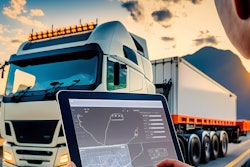
![Pros To Know 2026 [color]](https://img.sdcexec.com/mindful/acbm/workspaces/default/uploads/2025/08/prostoknow-2026-color.mduFvhpgMk.png?ar=16%3A9&auto=format%2Ccompress&bg=fff&fill-color=fff&fit=fill&h=135&q=70&w=240)



